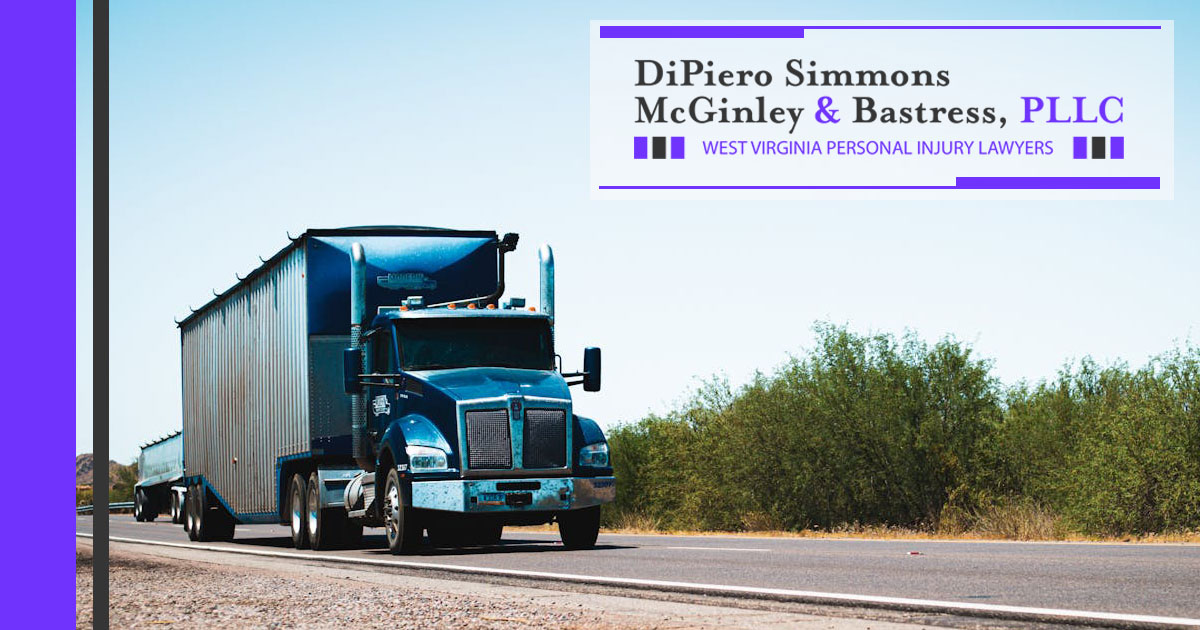
Whenever a car breaks down on the road, it slows down traffic. Drivers can’t resist the urge to reduce their speed to see what is going on. Unless a driver plans on pulling over to help, there is no need to slow down. A call to a tow service can quickly remove the car from the road and transport it to a mechanic’s garage.
Things get more complicated when a semi-truck breaks down.
When a big rig breaks down, it requires a specialized tow truck to remove it from the highway. There might also be an issue with offloading cargo onto a second truck. Either one of those scenarios could bring traffic to a grinding halt.
How often do large trucks break down on the highway?
It’s recommended that interstate truckers should expect repairs every 50,000 to 100,000 miles. If they skip those repairs, it can lead to a serious truck accident.
The Charleston truck accident attorneys at DiPiero Simmons McGinley & Bastress, PLLC, have helped many clients who have been victims of a collision with a truck. When mechanical failure is a contributing factor in an accident, the truck driver, the trucking company, and the fleet mechanic could all be held liable.
If a truck breaks down while driving, the lack of proper braking distance between cars can lead to a chain reaction pileup. Here are some of the reasons why large trucks break down on the highway:
Tire Blowouts
An 18-wheeler has 18 potential blowouts. The weight of cargo and the number of miles driven put a lot of pressure on those tires, leading to the blowout. Before any trip, the driver should inspect all 18 tires to ensure they are at the correct pressure and the treads are not worn down.
If a tire is worn out, it should be replaced. The older the tire, the higher the risk of a blowout.
Brake Failure
Much like a truck’s tires, the brakes are put under an enormous amount of pressure on every trip. Sometimes, a truck brake failure is so severe that the trucks are forced to use a runaway truck ramp, which essentially allows them to “crash” off the highway.
Regular maintenance can prevent failure.
Oil Leaks
Truck dashboards feature the same warning lights as those in cars. When there is low oil pressure and the warning light flashes, it may indicate a leak. By the time that light comes on, it might be too late to prevent a breakdown. That loss of lubrication can trigger failure throughout the engine.
Electrical Issues
When there is a problem with a truck’s electrical system, it can impact the alternator, starter, and battery. That might result in a truck being unable to start once it has been parked and shut down.
However, there could also be a failure while driving, leading to the truck driver losing control of the rig.
Overheating
Truck drivers are allowed to drive up to 11 hours in a single shift, with only a 30-minute break.
Many drivers opt to use up all of those 11 hours. That puts a lot of pressure on the truck’s engine, especially if that truck is driving in the summer heat. Overheating is a genuine risk for these trucks.
Engine Problems
Overheating would qualify as an engine problem, but many other potential issues can arise with a truck’s engine, such as a blown gasket, fuel leak, or other issues. Those breakdowns often occur when the driver or their mechanic neglect to upkeep the engine with routine repairs and maintenance.
Establishing Liability in a Truck Accident
When you have to establish liability in a truck accident, all options should be on the table. In other words, there could be a lot of blame to go around.
The attorneys at DiPiero Simmons McGinley & Bastress, PLLC, recognize the importance of conducting a thorough investigation into truck accidents.
Our goal is to hold all responsible parties accountable, helping our clients achieve the maximum benefits they are entitled to. If you’ve been involved in an accident with a commercial truck, we want to hear from you.
We invite you to schedule a consultation to discuss your options moving forward.






